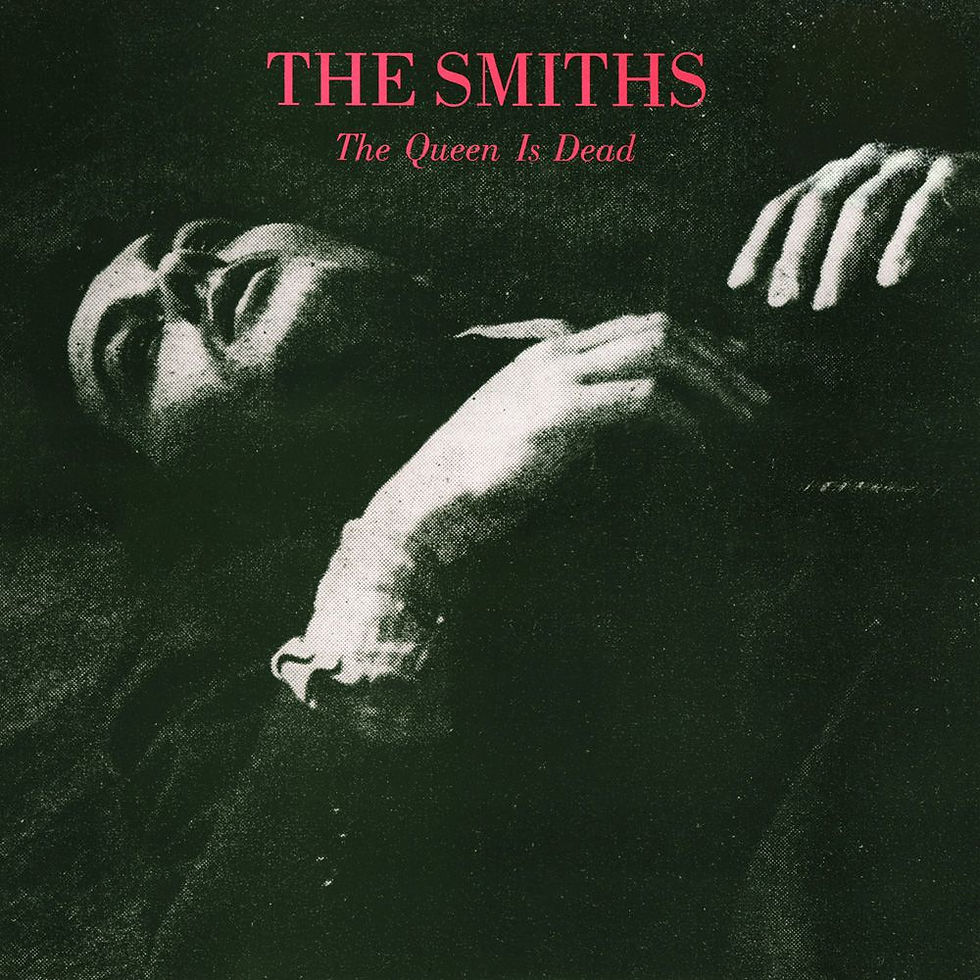Starting small: the Future of the Monarchy
- floyd132
- Sep 12, 2022
- 5 min read

As this is my first live post for six years, it is probably a good idea to keep it modest and understated - build up slowly to the bigger, more controversial stuff. And so. What does the change of guard at the top of the House of Windsor mean for the British Constitution and the wider state.
Full disclosure - for the last few days I have largely gone off the grid. Save for the cricket, of course. Like many, I'm keenly aware of the collective insanity that can consume the country at times like these and so I sought to avoid it as far as possible. This is, of course, a lot easier than it was back in 1997 and 2002 and it will be interesting to see what happens to viewing and listening figures. There are many days left to go and at some point I really should look at the news but in the meantime, here are some thoughts.
What does this mean for the Constitution?
The short answer is not very much. We have had changes of monarch before - it's just been a while since we last did it, seventy years in fact. In the fifty two years before that, we went through 5 different monarchs, including one abdication, so clearly there is an effective mechanism of transition. While much has changed in government and society, the institution of the monarchy really hasn't evolved in any material way in the last hundred or so years and so we should not expect anything dramatic. Yet.
What does this mean for British politics?
This is where it gets more interesting and to make sense of it, it helps to distinguish between the institution of the monarchy and the specific example as manifest in Elizabeth II. The constitutional roles of the institution are straightforward and should be within the compass of any reasonably sensible individual. The key is to remain above the fray, and in this if nothing else Elizabeth II was, er, peerless. The Queen was famously discrete, inscrutable even, and if the position of the monarchy in the present democratic constitutional settlement hinges entirely on the monarchy staying out of the picture, (in the English Constitution [1867] Walter Bagehot put it that 'The nation is divided into parties, but the Crown is of no party') then it has been impossible to fault the job as carried out by Elizabeth II. Even as Boris Johnson played fast and loose with the prorogation of Parliament and the advice supposedly offered to the Crown, the Queen remained schtumm, so demonstrating integrity and dignity not often seen in politics. Charles is manifestly an individual of opinion, often strongly held, but the safeguarding of the institution demands that he find a way to balance those beliefs with the apoliticism demanded of the position. If he can do that, then the monarchy is in no immediate danger. Charles can manage the institution, perhaps steering it towards the lower key style epitomised by the Danish, Swedish and Dutch monarchies. Or to keep it going as it, which strikes me as a higher risk strategy as I explain below. But should he struggle to achieve that political ataraxis, then everything is up for grabs. But that is a whole different blog.
What Charles cannot do is replicate the way his mother linked the country to its past. Whatever happened over the last 96 years, the queen was there and as often as not was a part of the history as it unfolded. That continuity gave the Queen a unique place in our common culture and to an extent perhaps explains the intensity of the emotions unleashed by her death. Just as the death of a grandparent cuts a thread on personal and familial ties to the past, in the Queen's passing we lose a link to a shared history, a history that looks ever more remote and strange as Britain staggers into the Twenty-First Century. As long as the Queen was there we could perhaps draw a line between now and the country we learned about in History.
Arguably, there is a virtue to severing that link. The GB past was never quite as glorious as we might want to believe and like any family history there is much in the country's past (recent and less so) that we might well want to review and reappraise. This could be an opportunity for doing that. Equally, history is not seldom shared by all or in the same way and so we should be wary when we generalise about history and the way any one person might embody it, and if it is a good thing.
But here is the thing. In an ever more atomistic society where identity seems to mean partisan rather than shared agenda, the Queen was one of the very few things that might be common across the nation. Whether or not people supported the monarchy, the combination of institutional standing and cultural clout meant that Elizabeth II was more effective at creating some common cultural ground than anything else I can think of.
I am sure that those laying down flowers in the Queen's memory or posting on social media have many different and perhaps complicated motivations but somewhere in there, I suspect, is a want to be part of something bigger than themselves. This is not to criticise or challenge the position but rather to see it as a reasonable response to a society that is more Gesellschaft when we would prefer a Gemeinschaft and the Queen, being both easy to understand and relatively uncontroversial, offers a route from one to the other. We see this all the time, whether it is the death of someone famous (real or imagined) or a local traffic accident.
And this is where I have to declare my interest. When it comes to the monarchy, I am by nature inclined towards republicanism (Thomas Paine memorably argued that 'a hereditary monarch is as absurd a position as a hereditary doctor or mathematician') but a political head of state will necessarily be divisive and I am not sure whether a step towards a more democratic future is worth that price. Also, I love the way in which the old dear could variously charm or discombobulate elected heads of state.
If we are worried about democracy in the UK, there are many, many bigger fish to fry before we unleash a democratically elected head of state. (OK, since you ask, can we start with appointments to the House of Lords? That's much easier and way more important.) In the meantime, Charles has the opportunity to decide where to position his iteration of the house of Windsor. He could opt for continuity or for something more like the various continental models. If he gets it right, he can relieve us of the potentially polarising effect of yet more elections to high office (I have seen somewhere that Mark Rutte, the serving Dutch PM, described the Netherlands as “..simply a republic in which one family continuously provides the serving president.” Citation needed!) while also acting as the common denominator in our national psyche. If he gets it wrong ... well, let's just hope he doesn't. I think we've all had our share of chaos.

.png)



Comments